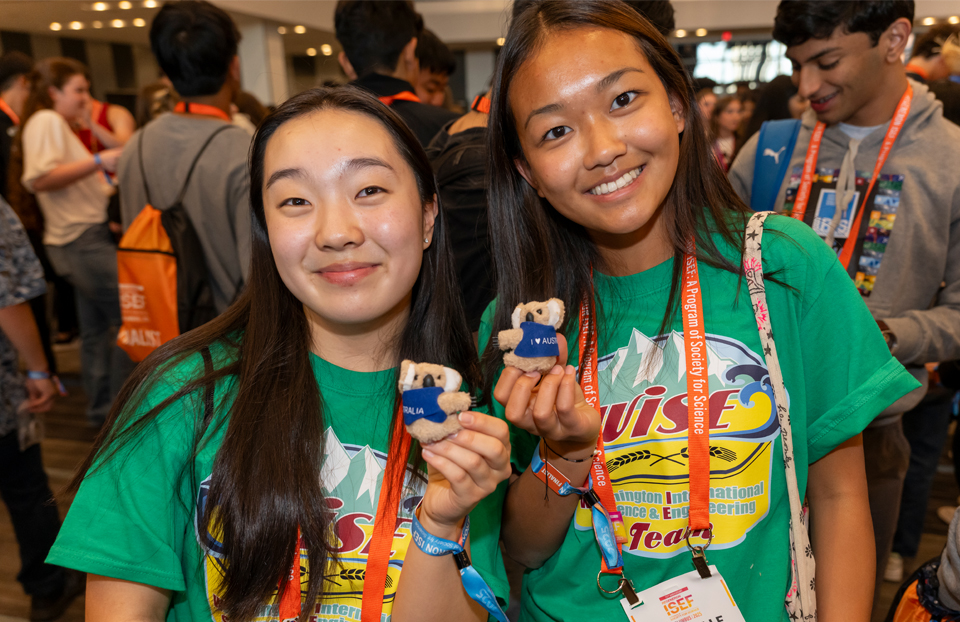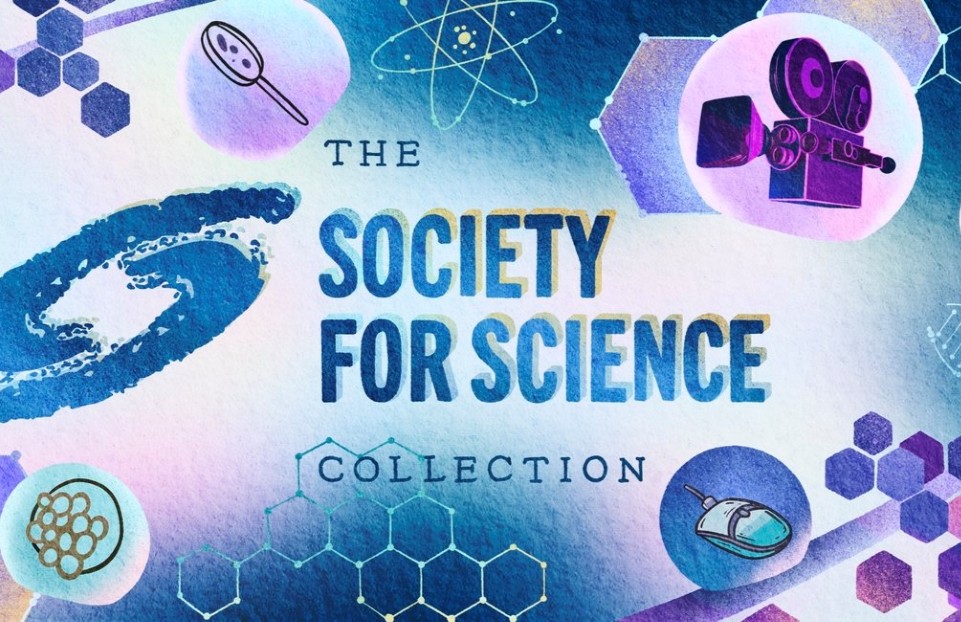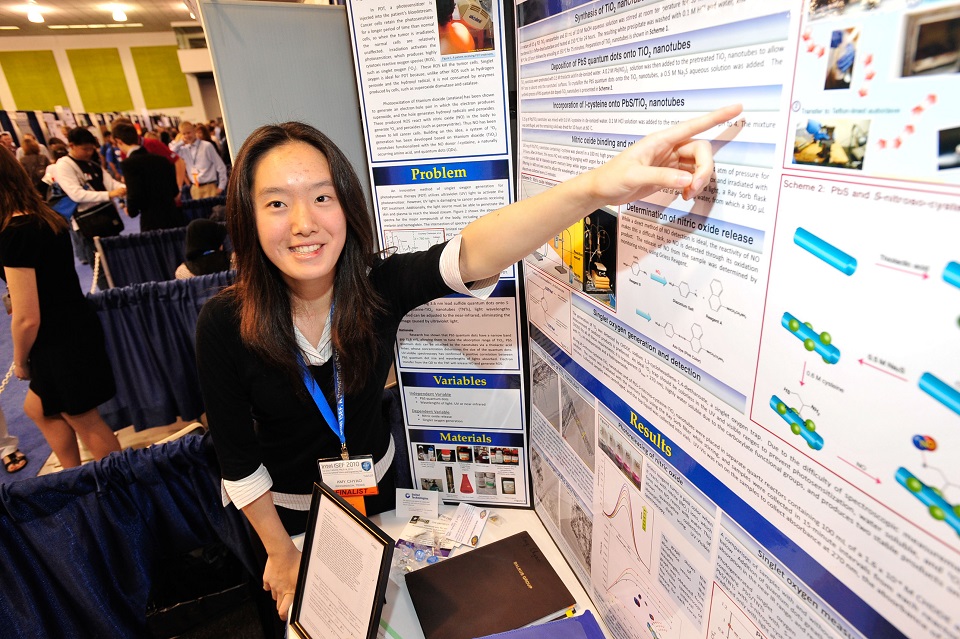Five questions with Krithik Ramesh, winner of the $75,000 Gordon E. Moore Award
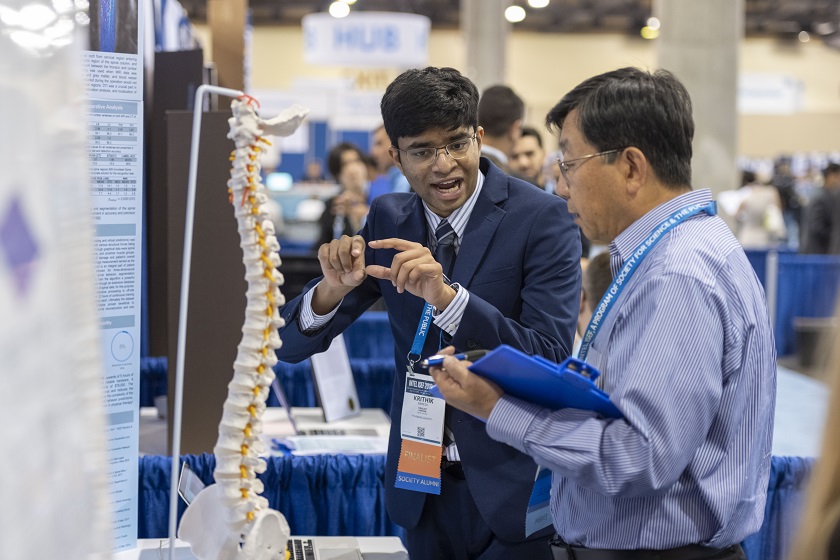
This post is part of a series profiling the top award winners of the Intel International Science and Engineering Fair (ISEF) 2019. Intel ISEF is the largest pre-college, international STEM competition in the world. This year’s competition included participants from 80 countries, regions and territories. Every year, the brightest young scientists from all over the world come together to participate in this incredible fair.
In this year’s competition, Krithik Ramesh of Englewood, Colorado, as featured on Science Friday, was one of the winners in the category of biomedical engineering. He then went on to receive the $75,000 Gordon E. Moore Award, the top award at Intel ISEF, for his work developing a real-time navigation system for spinal reconstruction surgery that requires only one CT or MRI Scan. The sixteen-year-old, inspired by the game Just Dance, collaborated with medical professionals to design an effective algorithm that could predict spinal behavior to guide the optimal screw placement and reconstruction of a damaged spine.
Here is our conversation with Krithik.
What was your experience like at Intel ISEF?
Intel ISEF is a life-altering experience that forever changes your understanding of what it means to be a researcher. You get the opportunity to meet with like-minded individuals that love research just as much as you do, from Nobel Laureates to middle school children, the exposure to talented, passionate and intelligent individuals is incredible. Some of my closest friends are ones I met at ISEF, and I am endlessly grateful for connections that I know will last a lifetime. The finalist mixer, which is essentially a Drake concert for nerds, and the Intel Quad are also dreams come true for the inner child in all finalists. ISEF has been an experience that has reinforced my love for science and motivates me to conduct research that can change the world.
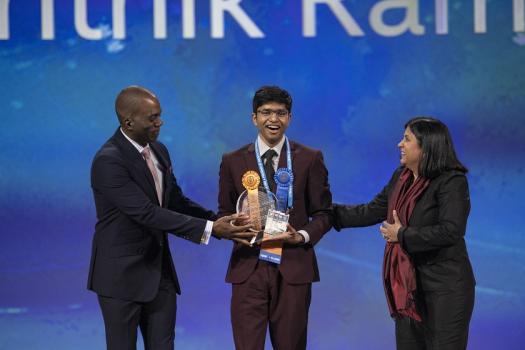
What’s the biggest lesson you’ve learned thus far in your scientific career?
You have to love what you do. It seems pretty obvious, but in reality, it’s one of the hardest things to learn. It was discouraging to stay up late studying complicated material that wasn’t particularly interesting at first glance, but the desire to research kept my motivation alive and would be crucial to my later discoveries. It’s understandable to lose motivation when things don’t go your way with your results or you don’t win the award you want, but, at the core, we all do research because we want to.
How do you deal with setbacks?
Somewhere along the way we associated mistakes with something bad—this stigmatization that mistakes shouldn’t happen because they aren’t the desired result. I think that you should make mistakes, face every possible setback and be on the brink of giving up.
Why?
Because in making as many little mistakes as possible, you prevent the big ones. I see setbacks as an integral part of conducting research, and, more often than not, we see that these setbacks are serendipitous—there have been a number of discoveries stemming from a scientist making a mistake in a lab, and those are the discoveries that make the world go round. Whenever I meet a setback, I remind myself that it just puts me one step closer to what I am trying to accomplish!
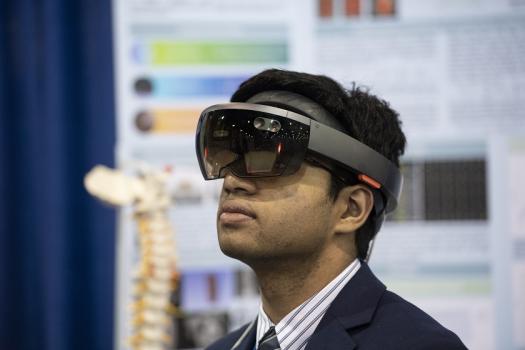
What is something you don’t currently understand that you wish you understood?
One of the most humbling things about conducting research is the fundamental understanding that we don’t know everything. I think one of the most pressing problems that humankind faces is the early identification and attempted diagnosis of cancer. Even when we catch pancreatic cancer in its first stage, the five-year survival rate is still incredibly low. To this day, we are still seeking to understand the mechanics behind cancer and its pathology.
What issues do you feel all countries should unite to take on?
I remember a debate resolution from my sophomore year that stated “developed nations ought to help developing nations.” The answer seems like an obvious yes, right? But it’s actually a lot more complicated than that: When developed nations provide aid, it can end up crippling the countries they aim to help. I think that all countries should collaborate on finding sustainable solutions that develop infrastructure for regions in need. Giving everyone opportunities to dialogue is the way we develop the discoveries and inventions that could save the world.
